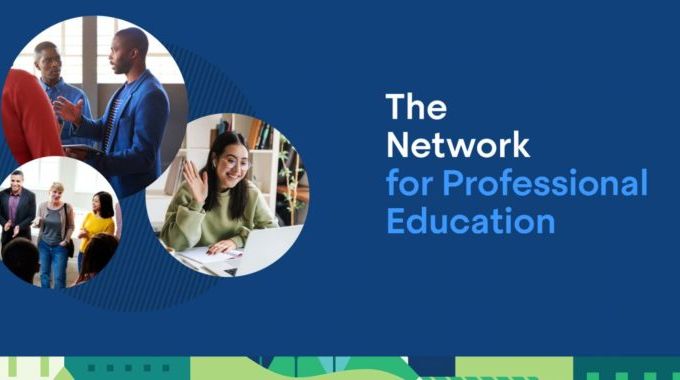Faculty Resource: EdTech Summer Reading, Podcasts & More
The summer season is officially underway—a time to renew, refresh and, if time allows, enjoy a good read.
With technology trends in mind, BU’s Educational Technology team created a summer 2020 reading (and listening) guide highlighting some of their favorite and most inspiring books, podcasts and more.
iGen: Why Today’s Super-Connected Kids Are Growing Up Less Rebellious, More Tolerant, Less Happy–and Completely Unprepared for Adulthood–and What That Means for the Rest of Us by Jean M. Twenge
About the book: Our undergraduates now are a new generation, younger than the millennials and different from them. The ubiquity of smartphones has shaped their lives in a variety of ways, not all of them good. Twenge provides one of the more detailed studies of this generation so far, combining eye-opening statistics with personal interviews in a readable package. This is a helpful book for understanding our undergrads, today and in the years to come. Learn more.
Technically Wrong: Sexist Apps, Biased Algorithms, and Other Threats of Toxic Tech by Sara Wachter-Boettcher
About the book: Sara Wachter-Boettcher’s book, Technically Wrong, is a must-read book that forces the reader to question the everyday forms of technology we use. No piece of technology is neutral because they are made by humans. From sexist apps to racist social media bots we need to critically evaluate the technology we use for potential biases and dangers. Technically Wrong, is an interesting and informative read that can serve as a useful guide for people who care about ensuring our technologies are humane and ethical. Read more.
Free Associations
About the podcast: BU’s Population Health Exchange hosts Matt Fox, Jennifer Rider, and Chris Gill discuss and break down a different scientific study each week. They take a critical lens of each study and the research methods behind the papers. They inject life into the research they examine, something that can be challenging when reading the literature alone. Learn more.
Invisible Women: Data Bias in a World Designed for Men by Caroline Criado Perez
About the book: The book is a well-researched and insightful read about the institutional bias and gendered information gaps and describes how the lack of big data on women in all aspects of life is equivalent to rendering half of the world’s population invisible. Educational Technologist Maria Afzal recently started this book and says although it sells itself as a book about data bias, it’s more of a book about data on bias with a list of the facts and figures that draws attention to how we rely on data that may not be representative of the whole population. Read more.
EdTech Favorites
Super Thinking by Gabriel Weinberg and Lauren McCann
About the book: Gabriel Weinberg built a competitor to Google Search that doesn’t track you. Expect to learn a little bit about how Weinberg makes decisions informing the growth of the search engine, DuckDuckGo (DDG), as well as understand how he and his co-author and wife work as a team. In an interview (via The Knowledge Project podcast) Weinberg attributed these mental models as essential professional development for DDG to his early employees as they grew into more senior leadership roles. Read more.
Exponential Wisdom hosted by Peter Diamandis and Dan Sullivan
About the podcast: Peter Diamandis and Dan Sullivan discuss how exponential technologies are creating massive opportunities for entrepreneurs all over the world and the impact of hyperconnectivity on global innovation. You will appreciate the way they explore different technologies and how they are changing; what we could see in the future, concerns/opportunities/excitement. The book also focuses on the coaching/mentoring shared throughout their friendship, Dan’s coaching business, and Peter’s role as an executive. Listen now.
Factfulness by Hans Rosling
About the book: The book Factfulness discusses how experiences of the ‘poor’ are not well understood by the ‘rich’ and that there is a continuum of poor and rich countries, with all countries trending toward more wealth and lower birth rate. The book offers insight into how/why news works and what is not reported (good things, slowly changing things), and highlights several techniques for how to think about data. Read Factfulness.
Chronicle of Higher Education hosted by Jeffrey Young and Goldie Blumenstyk
About the podcast: The Chronicle of Higher Education’s Jeffrey Young and Goldie Blumenstyk sit down with innovative teachers, ed-tech entrepreneurs, and others shaping the future of higher ed. One episode interviews Sarah Short, a long-time educator at Syracuse University, who reached teaching fame when she rode a motorcycle into her lecture hall—all in the name of student engagement. Listen to the podcast.
The Design of Everyday Things by Don Norman
About the book: Don Norman’s The Design of Everyday Things is a classic book for web and user-interface designers, originally written in 1988 before the web even existed. Its basic principle is that whatever one is designing, one needs to design it for people as they are, not people as the designers would like them to be. So one needs to consider human psychology in the design process, and the book is a splendid introduction to those elements of psychology that designers need to think about—especially, the amount of our information processing that occurs automatically, without conscious thought. It is relevant to a very large number of human activities. Read The Design of Everyday Things.
The Systematic Design of Instruction by Walter Dick and Lou and James Carey
About the book: The Systematic Design of Instruction presents a clear introduction to the fundamentals of instructional design and the concepts and procedures necessary for analyzing, designing, developing, and evaluating instruction for all delivery formats. The concepts do not need to be memorized, but rather the book can be used as a learning-by-doing resource designed to help create sound, effective instruction.
The book outlines a systematic, thoughtful, inquiry-based approach to creation, which in turn helps ensure the success of students in their charge. It features an intuitive chapter organization, an integrated model that presents research carefully illustrated with academic and business applications, contemporary design examples, sample rubrics and exercises, and annotated references. It is typically used extensively in the first course a student would take in an instructional design program, and will be referenced often in subsequent coursework. The book was part of the curriculum at UMass-Boston in the instructional Design program for Spring 2019. Read The Systematic Design of Instruction.
Interactive/Live Webinar Group | Future Trends Forum
About the webinar: The Future Trends Forum is an ongoing, participatory, and open video conversation about the future of higher education. Each week a different guest—an inspiring expert, visionary, practitioner, or researcher—converses about their area of interest.
The facilitator kicks off the discussion with a question or two, then facilitates further questions and comments generated by participants via chat, video, and Twitter. The facilitator encourages the entire audience to actively engage. Join the conversation.
Learn more about Digital Learning & Innovation, or to schedule an appointment with an Educational Technologist, email AskEdTech@bu.edu.
About the EdTech Authors: Boston University’s Educational Technologists provide faculty and academic staff tools to enhance teaching while leveraging available and emerging learning-centered technologies.


